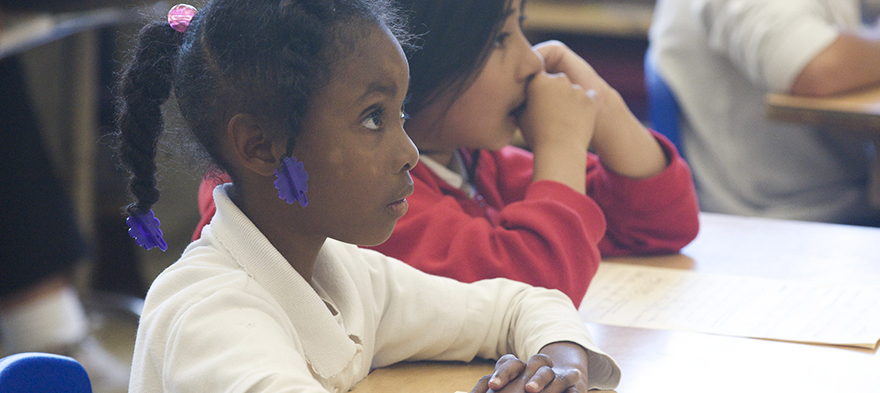
Apr 20, 2018 12:00:00 AM
by Ayanna Gore
Innovation requires thinking beyond goals.
When I first became a school leader, my school was on the academic probation list. I could walk through all the steps we took to move it to a level where the school no longer was on the list and had seen tremendous academic growth...and yet it is not enough.Systemically, students are set up to end in similar positions because the school hasn’t set them up to be change agents for their communities and families. Making the grade isn’t enough for Black and Brown kids that have to face so many challenges in a world not designed for them. Until that is the fabric of every conversation and an “innovative” goal...we will never see that to realization.
Ayanna L. Gore was born and raised on the South Side of Chicago, Illinois. With a long line of baptist ministers, Sunday school teachers and teacher aides in her family, education has always been the focus despite the fact that she earned a college degree before any siblings or her parents. She earned her Bachelors of Science degree in Biology with a minor in Psychology of Crime and Justice from Loyola University—Chicago. She entered education after joining Teach For America as a high school science instructor and continued her work in education for the last 10 years. Her passions lie within mindset coaching, classroom management, curriculum/instructional development and diversity, equity and inclusion within the school system. She is completing her doctorate in Educational Leadership at DePaul University where she is studying the impacts of novice Black teachers within Urban Schools. She focuses on providing support to educators with a cultural competency lens. Her motto is, "Where teachers learn, students learn!" Currently, she is the School Director for CICS ChicagoQuest. Here, she led turnaround efforts in 2016 which successfully moved the school from off of the Chicago Public Schools warning list. In her free time, she enjoys teaching bootcamp fitness classes and coaching weight loss challenges.
Few issues in education spark more tension and debate than standardized testing. Are they a tool for equity or a burden on students? A necessary check on school systems or a flawed measure of...
Charter schools are public schools with a purpose. Operating independently from traditional school districts, they're tuition-free, open to all students, and publicly funded—but with more flexibility...
Despite the benefits of a diverse teaching force, prospective teachers of color fall out of our leaky preparation pipeline at every stage: preparation, hiring, induction, and retention. Here’s what...
Ed Post is the flagship website platform of brightbeam, a 501(c3) network of education activists and influencers demanding a better education and a brighter future for every child.
© 2020-2025 brightbeam. All rights reserved.
Leave a Comment